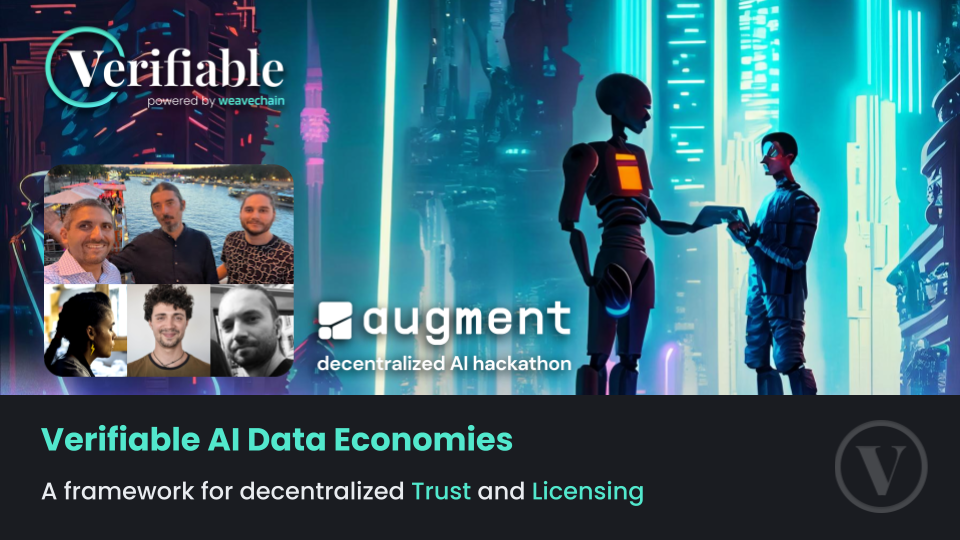Creative Commons Unveils Revolutionary CC Signals For An Open AI Ecosystem
In a world increasingly defined by digital innovation and the rapid expansion of artificial intelligence, the very fabric of the open internet is facing unprecedented challenges. For those deeply invested in the principles of decentralization, data ownership, and transparent governance—much like the cryptocurrency community—the news from Creative Commons resonates powerfully. This pioneering nonprofit, renowned for championing open access to creative works, is now stepping up to tackle one of the most pressing issues of our time: the responsible use of AI data. Their latest initiative, CC signals, aims to forge a path towards a sustainable and equitable future for AI, ensuring that the hunger for data doesn’t inadvertently destroy the very openness that fuels innovation.
The Challenge of AI Data and the Need for CC Signals
The explosion of AI technologies has created an insatiable demand for vast quantities of data to train sophisticated models. While this data is the lifeblood of AI, its unchecked extraction poses a significant threat. Many online entities, from individual creators to large corporations, are grappling with how their content is being used, often without clear consent or compensation, for AI training. This widespread, unmanaged data scraping could lead to a future where websites are walled off, content is hidden behind paywalls, and the collaborative spirit of the internet erodes.

This challenge highlights a critical need for a framework that respects creators’ rights while enabling the progress of AI. Without a clear mechanism for data licensing, we risk stifling innovation through legal battles or, conversely, undermining the very principles of open access that have defined the internet’s success.
The Vision of CC Signals
Recognizing this looming crisis, Creative Commons has unveiled CC signals, a groundbreaking project designed to provide a legal and technical solution for dataset sharing. The core idea is to empower dataset holders—the creators and custodians of online content—to clearly articulate how their data can or cannot be reused by machines for purposes like AI model training. This initiative isn’t about shutting down AI; it’s about building a reciprocal relationship between data providers and AI developers.

Unlike blunt instruments like robots.txt files or technical deterrents, CC signals proposes a nuanced approach. It’s a set of tools that offer a spectrum of legal enforceability, all underpinned by a strong ethical foundation. This echoes the success of the existing CC licenses, which have facilitated the open sharing of billions of creative works online by providing clear, standardized permissions.
Shaping an Open AI Ecosystem
This approach offers a proactive solution, moving beyond reactive measures like blocking scrapers or charging for access, towards a collaborative model where data can be shared intentionally and responsibly.
The urgency for a solution like CC signals is underscored by the current scramble among major online platforms to adapt their policies regarding AI data usage. Companies are struggling to define their stance, often leading to confusion and public backlash.
These examples illustrate a reactive, often adversarial, landscape. Platforms are either trying to block access entirely, monetize it, or simply create friction for AI trainers. While understandable from a protective standpoint, these methods do not foster an Open AI Ecosystem. CC signals, in contrast, offers a framework for consent and collaboration, providing a structured way for data to be shared, rather than simply taken or defended against.

A Future of Innovation and Collaboration
The vision behind CC signals extends beyond merely preventing misuse; it’s about actively fostering an environment where innovation thrives on shared resources, built on trust and reciprocity. Just as the original Creative Commons licenses democratized access to creative works, this new framework aims to do the same for the foundational datasets powering AI. It acknowledges that for AI to reach its full potential, it needs vast, diverse, and ethically sourced data, and that this data should come from a thriving “commons” rather than a series of isolated, protected silos.
Conclusion
The project is still in its early stages, with initial designs available on the Creative Commons website and GitHub. The organization is committed to an open development process, actively seeking public feedback through various channels, including upcoming town halls. An alpha launch is tentatively planned for November 2025, marking a significant step towards real-world implementation.
For anyone concerned about the future of the internet, digital rights, and the ethical trajectory of AI, CC signals represents a beacon of hope. It’s an invitation to participate in shaping a future where technological advancement and human values can coexist and flourish.
The launch of CC signals by Creative Commons marks a pivotal moment in the ongoing discourse around artificial intelligence and digital rights. By offering a robust, ethically-driven framework for data licensing, it addresses the urgent need for clarity and consent in how AI data is collected and used for training. This initiative promises to be a game-changer, fostering an environment where creators retain control, innovation can thrive responsibly, and the dream of an truly Open AI Ecosystem can become a reality. It’s a testament to the power of thoughtful, collaborative solutions in navigating the complex ethical and technical challenges of the AI era, ensuring that the benefits of AI are shared broadly and equitably, without sacrificing the open principles of the internet.
To learn more about the latest AI data trends, explore our article on key developments shaping AI models features.










